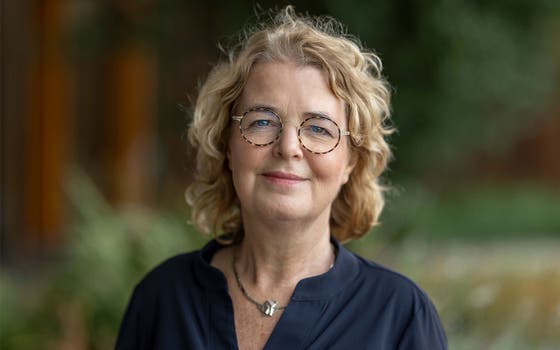Pay attention to late effects of childhood cancer

Leontien Kremer, professor of late effects after childhood cancer at Utrecht University delivered her oration titled 'LIFE: now and LATER' on caring for survivors of childhood cancer with late effects, health problems after treatment.
'Unfortunately, the improvement in survival of children with cancer in recent decades also has a downside. Children and adults treated for childhood cancer have a high risk of health problems. Health problems that occur about 20-30 years earlier than in the general population, says Leontien Kremer. 'In one of our earlier studies in Amsterdam, we showed that 75% of people who survived childhood cancer have a late effect. So far, we do not see a decrease in the occurrence of late effects over time. Attention to health problems later in life is therefore badly needed. We need to get it right now, LATER is too late.'
Health problems
The main physical health problems are the development of second tumours, organ dysfunction and other problems, including fertility problems. Kremer: 'The estimate is that one in 10 survivors, who are treated with some type of chemotherapy and radiotherapy, develop heart failure 40 years after childhood cancer diagnosis. This is a very high number of survivors. Another example is developing a stroke: Almost one in 10 survivors treated with radiotherapy on the breast area, neck on head develops a stroke within 40 years of cancer diagnosis. Proper treatment of other risk factors such as hypertension or high cholesterol is very important in this group. Besides physical health problems, severe fatigue is common among survivors of childhood cancer. Survivors may also experience psychosocial and neurocognitive problems. In short, the magnitude of late effects is large.'
International awareness
Professor Leontien Kremer: 'We did a study and identified almost 700 different late effects. We narrowed this down internationally to 43 health problems that measure quality of survival. These problems will now be measured as standard at the Princess Maxima Centre. The results of this project will certainly contribute to even better awareness of adverse effects. Attention to this is needed at the beginning of pediatric cancer treatment, as it will improve the quality of life of children with cancer and survivors now and LATER.'
From her teaching position, the professor says: "Together with global experts on late effects of childhood cancer, we have developed methods to develop new international guidelines. Who is at risk of which late effects? How can we best detect those effects? And what treatment can we start early? Ultimately, we then make recommendations on who should receive what tests and care. These international guidelines are the basis for the Dutch LATER guideline for care of child cancer survivors.
Individual care plan
I am very happy that we received a grant from ZonMW to create an individual care plan based on the LATER guideline. In it, data managers and healthcare providers summarise the childhood cancer treatment survivors have received, and we describe the LATER care needed for the specific survivor: a personalised care plan, five years after diagnosis. A plan that summarises the cancer treatment with recommendations based on their personalised risk for late effects and the LATER guideline. We are now working on an automated system where treatments are linked to guideline, leading to and digital individualised care plan. This is the basis for each survivor's own direction, but the plan can also provide clarity for other healthcare providers such as GPs.'
During her oration, Leontien Kremer expressed the ambition to establish a knowledge centre LIVE, NOW and LATER for long-term care after childhood cancer. This is in line with the needs of survivors. Kremer: 'Survivors need support beyond what we can offer in the hospital. It's about education, work, insurance, finances, and participating in daily life. With training, consultation and networking, the knowledge centre could play a leading role in good LATER care for survivors also outside the hospital.'
Milestones
This oration is an important summary of research and milestones in the field of LATER care, the care of survivors, people who are at least five years after treatment for childhood cancer. Over the past 25 years, under the leadership of Leontien Kremer, a LATER registry with data on 16,000 Dutch survivors has been completed. LATER care has gained a permanent place in the Dutch healthcare system. Moreover, within the LATER collaboration, the Dutch Childhood Cancer Survivor study, the LATER study, has been set up with almost 40 PhD tracks attached. LATER care in the Netherlands is an example for other European countries. "In a study funded by the EU, we are implementing this care in other countries."
Photo: Ed van Rijswijk
